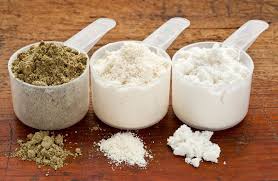When selecting deck boards for an outdoor patio, it’s essential to take into account their environmental impact. Decking materials vary widely and knowing their environmental footprint will help you make a more sustainable choice. Here’s the information you need to be aware of about the environmental impact of various Deck boards (Deski tarasowe):
1. Wood Deck Boards
Traditional wood deck boards that are constructed from redwood, cedar, and pressure-treated lumber, are popular due to their natural appearance and long-lasting. But their impact on the environment is different:
Cedar and Redwood: These woods are usually harvested sustainably from forests that are well-managed and can be a more eco-friendly option. However, their consumption could cause deforestation if not sourced responsibly. Cedar and redwood are fairly low in toxicity and are able to be treated with green sealants.
Pressure-Treated lumber: This kind of lumber is treated with chemicals to prevent decay and insects. The treatments used in the past contained arsenic, however current treatments aren’t as toxic. However, pressure-treated wood may leach chemicals into the soil and water in time, causing environmental issues.
2. Composite Deck Boards
Composite decking is wood fibers and plastic, usually recycled. This makes composite boards an environmentally friendly option in many ways:
Recycled Content: Many composite deck boards are manufactured from recycled wood and plastic material which helps reduce the demand for virgin resources as well as getting rid of garbage from landfills.
Longevity: Composite decks are popular for their strength and low maintenance. This could decrease the need for frequent repairs and replacements, which can lower their environmental impact as time passes.
Composite boards are not biodegradable. When they reach the end of their life, they’ll remain in landfills until they are recycled, which is an issue.
3. Plastic Deck Boards
Deck boards made of plastic are constructed of 100% synthetic materials, such as recycled plastics. They have several environmental benefits.
Recycled Materials: Many plastic deck boards are made out of recycled plastics. This helps reduce waste from plastic and reduce the need for new materials.
Durability and Low Maintenance: Decks made of plastic are impervious to weather, insects and decay, which can prolong their lifespan and decrease the requirement for maintenance. They are also fully recyclable which may help to alleviate some environmental concerns towards when they reach the conclusion of their lifespan time.
4. Bamboo Deck Boards
Bamboo is a rapidly renewable source, which makes it a green alternative
Sustainable: Bamboo grows rapidly and is harvested without harming the plant, making it a more sustainable choice compared to traditional hardwoods.
Durability Bamboo decking is just as durable as hardwood if properly treated, though the environmental advantages of bamboo decking are maximized when it is harvested sustainably and treated.
Conclusion
When selecting deck boards, consider the materials durability, sustainability as well as the disposal options at the end of life. Making the choice to use recycled or sustainably produced materials will significantly decrease your environmental footprint while enjoying an outdoor area that is beautiful.



